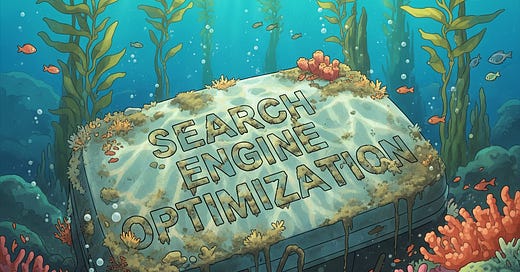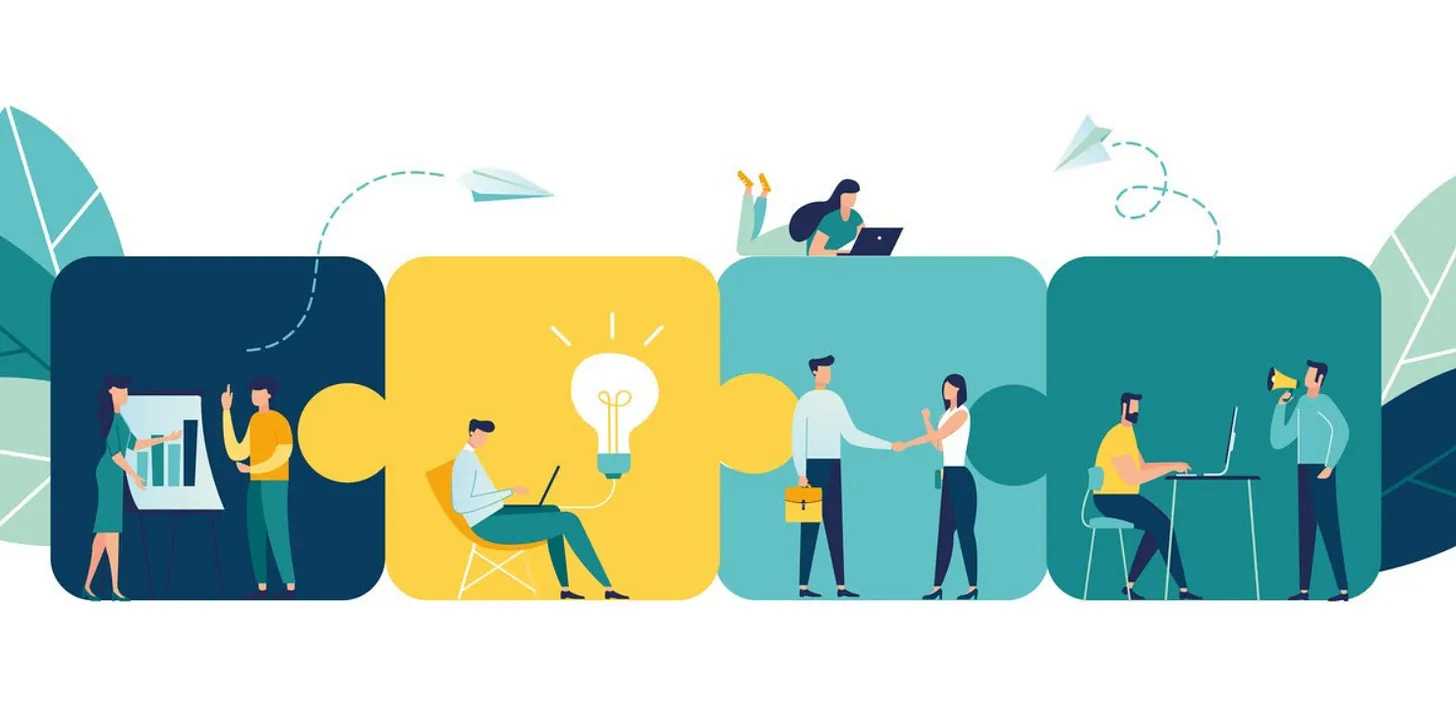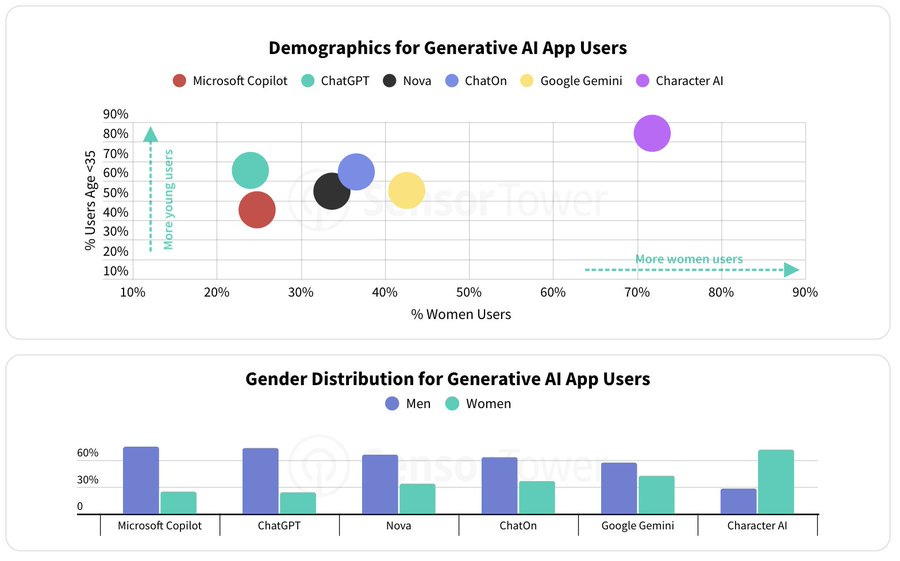Adobe & Google Know Something We Don't about Internet Search
This week in products, Adobe introduces an LLM Optimizer and Google opens gates to its AI mode for its Indian users. Is SEO is dying? Is AI the New Discovery Layer?
Over the past couple of weeks, two major moves by big tech signal a fundamental shift in the way we will search, browse, and discover on the internet.
First, Adobe launched its LLM Optimizer, a tool that helps brands manage and improve how they show up in AI-powered search results and conversational answers. It’s like an SEO optimizer, but built for a world where search engines no longer simply list links.
And just a couple of days back, Google opened up AI Mode, its AI-powered search experience (SGE) for Indian users, expanding on its global rollout from I/O this year.
The big shift
SEO is dying. AI is the New Discovery Layer.
For years, SEO has been the dominant currency of the web. If you wanted your brand or product to be found, you played the SEO game. You optimized for the search engine, built backlinks, crafted keyword-rich landing pages, and hoped to rise to the top of Google search “blue links”.
But here’s what’s happening now. Google and other search engines are slowly pushing those familiar blue links further and further down the results page.
What’s taking their place? AI-generated overviews that answer your question directly.
From SEO to GEO
The Adobe launch marks the first real productization from big tech for this shift from Search Engine Optimization (SEO) to Generative Engine Optimization (GEO).
When you think about it, GEO is a whole new discipline:
You’re not optimizing for clicks. You’re optimizing for inclusion in summaries.
Dashboards won’t track pageviews, but LLM mentions, accuracy of summaries, and whether your brand is positioned correctly by the model.
Product data will need to be formatted in ways that LLMs can easily understand and recommend.
The discovery layer of the internet is being redefined not as a list of blue links, but as AI-driven decisions about what’s worth mentioning.
LLMs have become the new front door to brand discovery.
In the post-AI internet, search engines would summarize, recommend, and sometimes skip your brand’s links altogether.
For instance, when a user asks, “What’s the best accounting tool for freelancers?”, they don’t get a list of links to compare anymore. They get one, maybe two, summarized answers. And if you’re not in those summaries, you simply don’t exist.
So today, your website is no longer your storefront. It’s your backend data source.
Adobe understands this. That’s why their LLM Optimizer is such a sharp, well-timed move. It’s a product that helps brands track how their content appears in AI-generated answers and gives them recommendations on how to improve their visibility in this new world.
As Adobe’s VP Loni Stark put it:
“Generative AI interfaces are becoming the go-to tools for how customers discover, engage, and make purchase decisions, across every stage of their journey.”
Driving the news
Here’s what analysts say…
According to Gartner, by 2028, brands’ organic search traffic will decrease by 50% or more as consumers embrace generative AI-powered search.
New research from Bain & Company finds 80% of consumers now rely on AI-written results for at least 40% of their searches, reducing organic web traffic by 15% to 25%.
Search Engine Land reveals an 800% increase in referral traffic from LLMs between Q3 and Q4 of 2024.
This change didn’t happen overnight, but it’s moving faster than most brands are prepared for.
Zooming out
The Internet is changing. Not just Google and Adobe
Across the tech landscape, companies are scrambling to build for the AI-powered web:
The Browser Company shifted its strategic focus from Arc Browser to Agentic AI-powered dia Browser
Apple Intelligence has now integrated Siri with ChatGPT, with the iPhone’s action button enabling direct voice chats with ChatGPT.
Meta, too, has joined the race with search bars on Instagram and Facebook now incorporating Llama, Meta’s LLM, which allows users to ask questions, generate images, or search within the app.
Google URL bar, which had long been used as a quick search tool, now lets users interact with Gemini or view AI-generated overviews when performing traditional searches.
We’re witnessing the collapse of traditional browser behavior as we know it. The interface is disappearing. The search bar is no longer a gateway to websites.
Where Do We Go From Here?
The Future of Search
We are entering a world where:
Browsers become agents.
Search bars become conversations.
Interfaces fade away.
We are witnessing the collapse of the discovery funnel for online sales and marketing. Instead of starting with a Google search, clicking a website, reading through blogs, and signing up for a trial, your customer now just asks the model.
And the model answers. If you’re not showing up in that answer, you don’t get a second chance. The next frontier isn’t how to rank on Google. It’s how to exist in the LLM’s worldview.
And that’s a very different game.
📰What’s going around tech?
Snap’s Student Calendar, Reddit’s Orb Plans, and Amazon’s Healthcare Push…
QNu Labs launches QNu Academy to train India’s quantum workforce
QNu Labs has launched QNu Academy to support talent development in quantum technologies and cybersecurity. The program offers certifications, hands-on labs, and mentorship aligned with India’s National Quantum Mission. It aims to build a skilled workforce for the country’s emerging quantum ecosystem.
Read More→
Snap acquires Saturn, a social calendar app for students
Snap has acquired Saturn, a social scheduling app popular among high school and college students. The app helps users manage and share class schedules and events with friends in real time. Saturn will continue to operate independently, but Snap is expected to integrate its features into Snapchat to deepen engagement with Gen Z users.
Read More→
Amazon India launches at-home diagnostics service in six cities
Amazon has rolled out a new home diagnostics service in India, offering lab tests with sample collection and digital reports through its app. Initially available in six major cities, the service is powered by Orange Health Labs and includes over 800 tests. This move expands Amazon’s healthcare footprint in India, complementing its existing pharmacy and clinic offerings.
Read More→
Adobe debuts Project Indigo, a pro-level camera app for iPhone
Adobe has launched Project Indigo, a new iOS camera app designed to bring professional-grade computational photography to iPhones. Built by a team led by Marc Levoy, the app offers advanced features like 3D exposure control and AI-based tone mapping. Available for free, Indigo aims to give photographers more creative control while competing with native camera apps.
Read More→
Reddit may use Sam Altman’s iris-scanning Orb for user verification
Reddit is exploring the use of World ID’s iris-scanning Orb, developed by Sam Altman’s startup Tools for Humanity, to verify that users are real people. The Orb captures encrypted iris data to issue a World ID, confirming human identity without revealing personal information. The move is part of Reddit’s broader push to reduce bots while preserving user anonymity.
Read More→
A video I found insightful
The Technology That’s Asking Us Bigger Questions
Sergey Brin, co-founder of Google, rarely speaks publicly these days, so when he does, it’s worth paying attention.
In this interview, he reflects on the rise of AI and how it compares to the early days of the internet. For him, the difference is fundamental. He doesn’t think of AI as something we invented. He sees it as a discovery. Something we’ve uncovered that’s still unfolding in ways we can’t fully predict.
He makes the point that the Internet had protocols and a fairly structured path as it grew. AI is different. It’s evolving in a way that challenges how we even define intelligence. There’s no roadmap. That makes it both exciting and a little daunting.
Brin also leans into the philosophical side of this shift, diving into how AI brings up big questions around consciousness, ethics, and what it means to create something that might someday match or even exceed human intelligence, and for him, the intersection of philosophy and technology isn’t just interesting. It’s essential. We need to think just as hard about the implications as we do about the engineering.
Look what I found
First, AI steals our jobs, and now our girlfriends
📬I hope you enjoyed this week's curated stories and resources. Check your inbox again next week, or read previous editions of this newsletter for more insights. To get instant updates, connect with me on LinkedIn.
Cheers!
Khuze Siam
Founder: Siam Computing & ProdWrks






